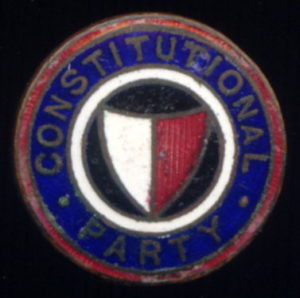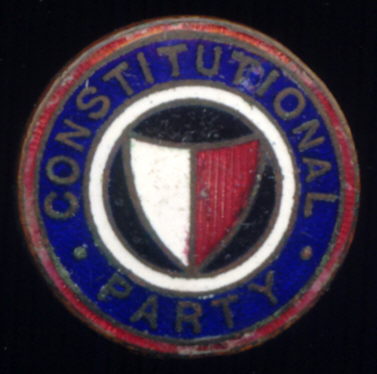History was made. Marlene Farrugia, elected on a PN ticket for reasons we shall delve into later, will, once this session of Parliament commences, become the first member of a third party to sit in a parliamentary session from the start. The constitutional repercussions of this matter are still unfolding and require careful analysis. I hasten to add at the start that the analysis goes above the person and candidate but looks rather at the wider picture – the possible implications of what just happened and the conclusions that can be drawn.
Let us take a quick look at what happened.
Getting into Parliament
On the 28th of April this year, the PD and PN announced what both sides referred to as a ‘coalition agreement’. The coalition between the two parties would be known as Forza Nazzjonali, however for electoral purposes the PD agreed to contest the election under the PN banner and list. PD candidates would be identified as tal-orangjo on the ballot sheet. Crucially on a political level it was immediately clear that the PD was retaining a form of autonomy within the ‘coalition’ – the orange party kept the right to choose which candidates to field on which district, it made it clear from the start that it would be working with the PN (with not within) to present one electoral programme. The parties also declared that each candidate would remain under the responsibility of the respective party.
Was this clear at the time? I reacted with the post Coalitions in the time of cholera. I was clear from the start – this was not really a coalition, at least not in the pure sense of the word. As I already stated in that post, the main purpose of this ‘coalition’ was to get the necessary numbers to vote corruption out of government. The legal constraints posed by article 52 of the constitution only allowed for a workaround that would give a sporting chance to a group of parties to be elected with a pre-electoral arrangement in place. To be clear, had the parties chosen to run on their separate lists they very well risked not triggering article 52(1)(ii) thus leaving them without the proportional compensation. That was not their main concern though – their main concern was pooling all their votes to count for the much needed majority they were hoping to achieve.
Given the circumstances the workaround was a brilliant move. PN and PD would run under one party list. For the election any votes each party would get would contribute to that list. Could it have been done better? Maybe. With hindsight a third ‘mega-party’ could have been registered with candidates from the two parties pooled within this mega-party. Still one list, still two parties in one. This was a snap-election though and practicality trumped aesthetics. This is also the official reason given why AD dropped out of the anti-corruption coalition.
There are a few matters to bear in mind at this juncture:
(1) The how and why of the ‘coalition’ was openly declared before the election – this was no secret negotiation. This is important because when it comes to political loyalty and responsibility what the parties did next once the election was over should have come as no surprise to anyone. It should not have surprised the hardcore PN member who cried ‘foul’ when they interpreted the PD success as a PN loss. Not only should it not have come as a surprise but they should have been content with the result since the Forza Nazzjonali theme was what everybody had rallied behind before the election. It should not have surprised the Labour party either. They had capitalised on the idea of ‘A Coalition of Confusion’ and suddenly were u-turning their spin and claiming that the PD was never elected to parliament. That spin is understandable, it is not in Labour’s interests to see a ‘coalition’ work as much as it is to the distaste of PN hardliners.
(2) The autonomy of the PD within the PN list was clear. Persons who were voting for Marlene Farrugia and her team were voting to get a PD candidate in parliament while ensuring that their number one choice is not wasted. One did not preclude the other. In fact, it worked. Here is how J’accuse was suggesting to vote before the election (The change we need and how to vote it in):
On June 3rd my number 1 vote will go for the PD candidate in my district. I chose the PD candidate because they are our Trojan horse to bringing about this change. By accepting the difficult conditions of a coalition with terms dictated by the current electoral laws they were prepared to sacrifice the party for the good of the country. I will continue on the nationalist and alternattiva candidates.
PD was prepared to drop the logo and drop their individual list. It was a small price to pay to contribute to a possible victory against corruption. In the end corruption still won but it does not change the rules of the game.
In Parliament
So once the result was known and once it was clear that Marlene Farrugia had been elected from the 10th district, the Labour Party decided to play the usual games which have long been in the PLPN style. We had a protest before the Electoral Commission and then before the Constitutional Court. For all intents and purposes this was a stillborn case. Any interpretation of the rules drafted to safeguard the interests of the two big parties could not have been otherwise. The infamous provisos to article 52(1) are supposedly written into the Constitution to ensure some form of governability. Labour was hoping to trigger 52(1)(ii) by claiming that more than two parties had been elected to parliament.
You see the trouble with the article 52 provisos is that they ‘reason’ in terms of political parties. Before the PL and PN played around with the constitution to suit their needs and continue to undermine our representative democracy, political parties had no mention in the constitution. It did not need to mention them. Just take a look at article 80 that deals with the appointment of the Prime Minister. You would be forgiven if you assumed that our Constitution says that the leader of the party with more votes becomes Prime Minister (or something of that sort). Instead the Constitution states that “the President shall appoint as Prime Minister the member of the House of Representatives who, in his judgment, is best able to command the support of a majority of the members of that House”. See that? Majority of the members of that House. They could be 67 individual independent MPs and a potential PM would have to meet each and every one of them after an election and convince a majority of them to support him to form a government.
PLPN did away with these complications. With the proviso articles they also made damn sure it would be darn difficult for any third party to convince people to ‘waste’ their vote and get them into parliament. Which is why when the PD and PN sat at that table discussing the coalition there was only one way to go: form one party list under one banner and logo.
But. And here is the groundbreaking moment the Labour lawyers missed (or didn’t but what the heck), the rules on getting into parliament stop just there… getting into parliament. Once you are in parliament you are no longer obliged to stick to your party. One reason that happens is precisely because our constitution views parliament as a house of elected representatives not as a house of party representatives. We have all seen members of parliament switch allegiance or leave their party half way through a session of parliament. Marlene Farrugia and Giovanna Debono sat as independents in the last parliament. AD briefly had two MPs when they switched from being Labour MPs. The nationalist party once formed a government when one member of another party switched allegiance on the first day of parliament.
So. To end this post (others will follow), the rules applying to how many parties are elected to parliament stop applying once the election is over. That is what just happened. As per agreement for the Forza Nazzjonali declared back on the 28th April, Marlene Farrugia is free to be a PD MP as from day one of the Parliament. Elected on a PN ticket as a workaround for electoral purposes she is now able to sit in parliament in representation of her party. She can still fall under the opposition whip though this would be the first time I believe that this happens with a second party in opposition.
There was no betrayal, no secret deal that was suddenly uncovered. The PN and PD may have lost the election but they still managed to break important constitutional ground. If anything this success exposes the inconsistencies of a system that for too long has nurtured the race to mediocrity between two outdated behemoths. What we do with this newly gained knowledge remains to be seen.


One reply on “The Coalition Conundrum”
One correction, AD had one MP, Wenzu Mintoff:)